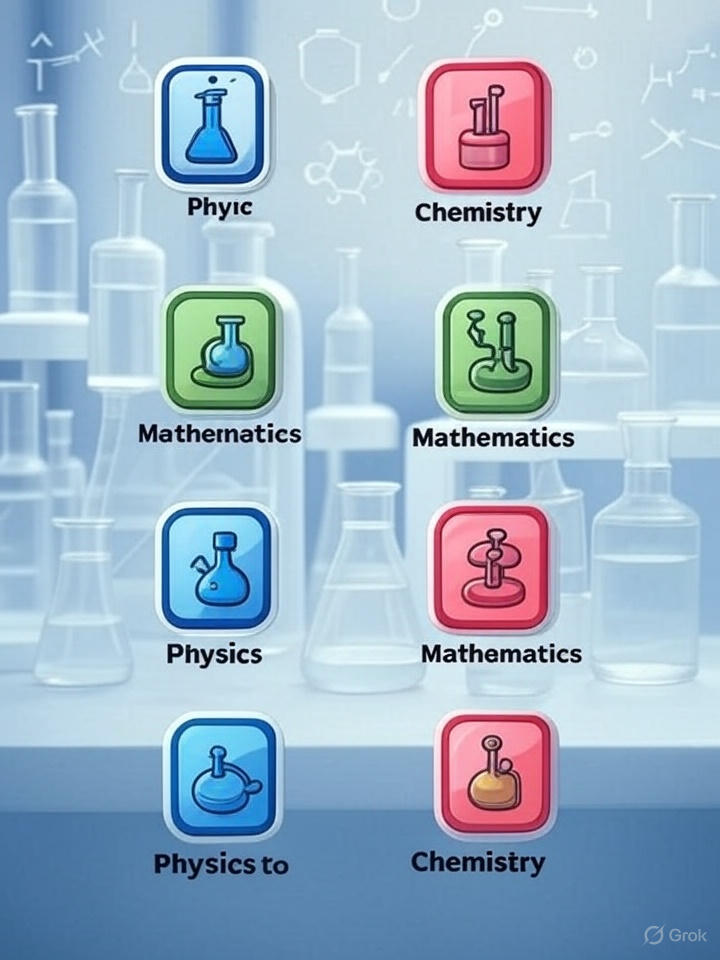Pre Engineering in Pakistan – Complete Guide, Subjects & Career Scope
Pre Engineering in Pakistan – Complete Guide, Subjects & Career Scope :- F.Sc. Pre‑Engineering in Pakistan is the first step for students after matric science who dream of becoming engineers, architects, or tech professionals program offers a strong foundation in mathematics, physics, and chemistry—gearing students toward high-demand careers in engineering, IT, and other technical fields.
Whether you’re aiming for top universities or preparing for competitive entry tests like ECAT or NUST, this guide will walk you through everything you need to know about F.Sc. Pre-Engineering in Pakistan.

What Is F.Sc. Pre‑Engineering?
The F.Sc. Pre‑Engineering program in Pakistan provides students with a solid foundation in science and math.F.Sc. Pre-Engineering is a two-year program after matriculation with science. It focuses on core scientific subjects essential for higher education in engineering, computer science, and technology-related fields.
Students who opt for Pre‑Engineering are typically those who are:
- Strong in Mathematics and Science
- Interested in pursuing Engineering, Architecture, or Tech degrees
- Planning to appear in engineering entry tests
Subjects and Curriculum
The F.Sc. Pre‑Engineering subjects in Pakistan include Physics, Chemistry, and Mathematics, each taught with practical and theoretical components. The curriculum is divided into two parts: Part-I (1st Year) and Part-II (2nd Year), with compulsory and elective subjects.
Compulsory Subjects (Both Years)
- English
- Urdu
- Islamic Studies (Part-I)
- Pakistan Studies (Part-II)
Elective Subjects
- Physics
- Chemistry
- Mathematics
Each subject is studied over the entire year with a mix of theory and practical lab work. Total marks are 1100, distributed equally across both years.

Key Concepts Covered
🧮 Mathematics
- Algebra
- Calculus
- Trigonometry
- Matrices and Determinants
- Probability and Statistics
⚗️ Chemistry
- Atomic Structure
- Chemical Bonding
- States of Matter
- Organic and Inorganic Chemistry
- Thermochemistry and Electrochemistry
🔭 Physics
- Motion and Forces
- Work and Energy
- Waves and Oscillations
- Thermodynamics
- Electromagnetism
- Optics
- Modern Physics
This solid academic base ensures students are ready for more advanced learning at the university level.
Career Opportunities After F.Sc. Pre‑Engineering
After completing F.Sc. Pre‑Engineering in Pakistan, students can pursue engineering degrees or shift to emerging fields like AI, data science, or architecture. One of the biggest advantages of this track is the diverse set of careers it opens. Here are some top fields students can pursue after completing F.Sc. Pre-Engineering:

🎓 University Degree Options
- Mechanical Engineering
- Electrical Engineering
- Civil Engineering
- Computer Engineering
- Software Engineering
- Mechatronics
- Petroleum & Chemical Engineering
- Architecture
- Data Science
- Physics or Mathematics (BS programs)
💼 Alternative Career Paths
- Computer Science and IT
- Artificial Intelligence
- Aviation
- Environmental Science
- Business Analytics
- Technical Education & Research
- Entrepreneurship in Tech & Innovation
Skills You Develop
This pre-engineering program helps students develop critical thinking and analytical skills needed for success in science and technology fields. F.Sc. Pre‑Engineering not only teaches academic concepts but also builds practical and soft skills, including:
- Analytical Thinking
- Problem Solving
- Critical Reasoning
- Research & Experimentation
- Teamwork through Lab Work
- Time Management & Discipline
These are transferable skills that serve students well, even outside the field of engineering.
Why Choose Pre‑Engineering?
Here’s why thousands of students across Pakistan opt for Pre-Engineering every year:
✅ Builds a strong base in science & math
✅ Prepares for ECAT and university entry tests
✅ Leads to high-demand, well-paid careers
✅ Opens multiple career pathways beyond traditional engineering
✅ Encourages innovation and scientific thinking

Tips for Success in Pre‑Engineering
In summary, F.Sc. Pre‑Engineering in Pakistan is a comprehensive intermediate program that opens doors to top engineering careers, universities, and beyond.Students enrolled in F.Sc. Pre‑Engineering in Pakistan should start ECAT preparation early and focus on understanding science concepts deeply
- Stay Consistent – Regular revision is key in mastering math and physics.
- Practice Numericals – Don’t just memorize formulas; understand their applications.
- Join a Test Prep Program – Start ECAT or university entrance preparation early.
- Use Visual Aids – Diagrams, videos, and simulations can boost understanding.
- Participate in Labs – Hands-on experiments deepen your scientific skills.
- Explore Beyond Books – Try small DIY electronics projects or software simulations.
Final Thoughts
F.Sc. Pre‑Engineering is more than just a college program—it’s a launchpad for the future. With the right mindset, consistent effort, and proper guidance, students can secure admission into top-tier engineering and technical universities in Pakistan and abroad.
This program not only shapes academic excellence but also molds future problem solvers, innovators, and engineers. If you are ready to challenge yourself and build a rewarding career in STEM, Pre‑Engineering is the way to go!

Keywords to Target:
FSc Pre Engineering in Pakistan, Pre Engineering subjects, after Pre Engineering career options, engineering colleges in Pakistan, ECAT preparation, best intermediate programs, FSc Pre Engineering syllabus.